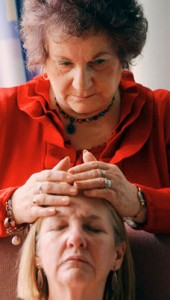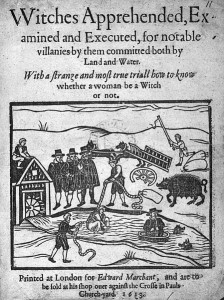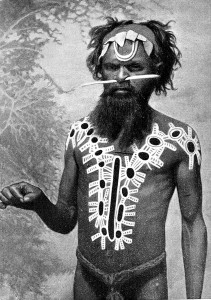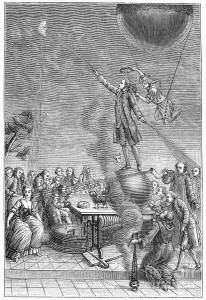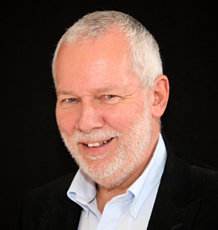 Paul Dieppe is professor of health and well-being at Exeter Medical School. Having spent a distinguished career researching rheumatism and specifically knee pain, he shifted his focus onto the placebo effect and, most recently, humans’ natural ability to heal themselves, which he calls ‘the healing response’.
Paul Dieppe is professor of health and well-being at Exeter Medical School. Having spent a distinguished career researching rheumatism and specifically knee pain, he shifted his focus onto the placebo effect and, most recently, humans’ natural ability to heal themselves, which he calls ‘the healing response’.
Can you tell us about your research into ‘the healing response’?
I’ve been interviewing healers and people who think they’ve been healed, doing in depth qualitative interviews to get a sense of the experience of both parties, and the views of both parties as to how it works. I’ve also been doing sensory ethnography tests – I ask people to give pictorial representations of what healing represents to them. That’s been absolutely fascinating. They often surprise themselves by what they draw. One person burst into tears while drawing because he had an insight into what was going on in his life. Drawing seems to access a different part of our brain.
So how do the healers think healing works?
The dominant narrative is about energy flow. Some think in an externalised way of energy from outside being channelled through them. Others speak of rebalancing natural energy levels.
What about the healed?
I’ve talked to fewer of them than the healers. But I suspect they go along with whatever narrative or attribution the healer comes up with.
Have you come across many instances of actual healing?
Masses of cases. It’s anecdotal stuff, but it’s extremely impressive and extremely convincing. I’ve experienced it myself. A lot of this stuff happens completely under the radar, people just getting on with it in their back room, not part of any particular body or group, just doing their own thing. I went to see one such person, a little old lady in her front-room, and she said the best way to understand healing is to experience it yourself, and asked if I had anything I wanted working on. I told her I had a bad knee, so she said, OK let’s give it a go. And for what it’s worth, it’s been better since then. That was a couple of years ago.
What’s your explanation of what’s happening?
There are many possible explanations, of course. I think the energy story has something to it, though I don’t understand it. But my main hypothesis is this is about switching on our own intrinsic ability to heal ourselves, which we evolved for powerful and important reasons. Healers are helping us to activate that mechanism which, for some reason, we have forgotten in our culture. Some call the process unconditional love. If that’s too difficult, my short-hand for it is ‘total attention with good intention’. It’s about having a totally unconditional desire for the other person to get better.
Do you have a sense of what happens in the brain, does it involves specific neural or nervous networks? What systems does it involve?
Life gets difficult when you talk like that. You’ve slipped into the assumption that our materialist knowledge is the appropriate framework for that. We assume our current materialist science can explain everything, so the default position is ‘how can I explain this physiologically within my own materialist framework?’ I’m not convinced that’s the right way to do it.
No, I don’t have a materialist worldview, but if there is a spiritual dimension (which I think there is) I’m curious as to how it interacts with the body. William James, for example, explored how spiritual experiences interacted with ‘the subliminal self’. I wonder if healing is connected to things like trance states, altered states of consciousness, and so on.
OK, well how might it happen in those terms? Certainly there’s a lot of evidence for our ability to alter things through the Autonomic Nervous System via hypnosis. That can give us clues to a lot of this stuff. Hypnosis certainly affects the ANS, it certainly affects the immune system…probably everything. The mind / body split is of course silly. Everything is connected, everything works together. Although it’s easiest to talk in terms of what we can observe physiologically…I think we can control pretty much all of it probably.
You spoke of ‘cultural forgetting’. How and when do you think we forgot the healing response?
It was perhaps something that followed from the invention of germ theory [in the 18th and 19th century], which allowed us to have a mechanistic concept of the cause of disease and the belief that we can isolate this factor and do something about it. It’s a result of that shift in thinking. Prior to that, there was a much more spiritual and pluralistic view of how things work, and what disease states might mean. It’s still an approach that’s prevalent in some parts of the world, other than our so-called developed world. If you talk to people in some parts of Africa, their view is more akin to where we were.
Another factor was our rejection of witchcraft. A lot of the healers I meet are very strange people, who, in times of yore, would have been written off as witches. They possess an extraordinary sensitivity to others. One or two have said some really weird things, like they have blurred sense of the boundary of self – they’re not sure if what they’re feeling is their feeling or the person they’re with. They’re sometimes called ‘sensitives’. We might think of the capacity for human sensitivity as being on a spectrum – if autistic people are at one end, at the other end are these sensitives. I think that’s where the healers fit in the spectrum. When they focus their attention on others, remarkable things happen.
OK, so at the moment we’re at or near the peak of a biomedical conception of health and illness. You, by contrast, espouse what you describe as ‘a bio-psycho-socio-spiritual theory of the transcendence of suffering’. How does that go down in academic medical circles?
Most of my medical colleagues think I’ve gone completely barmy, and this is all absolute nonsense. The dominant model in which we work and teach rejects anything to do with spirituality. If you mention words like spirituality or love, you’re rejected. It’s not acceptable behaviour, you’re regarded as someone who should be quietly taken off to the funny farm. So it’s quite lonely. It doesn’t bother me, I’m at the end of my career, I don’t need a new job or a reference, I don’t need to toe the line. It’s irrelevant to me. But I can feel the group discomfort sometimes around this area. I think the medical profession is a bit out of kilter with the rest of society, which is probably more accepting of the link between spirituality and health. Can I tell you another story?
Sure!
I remember a comment my daughter made after my knee was healed. She’s a doctor. I used to hobble around with my bad knee, and then when my daughter could see it was much better, she asked me if I’d finally had a knee replacement. I said no, I’d gone to a healer. She gave me a look, then she stopped herself, and asked if I’d had it X-rayed to see if it was structurally better. I said I hadn’t. She said: ‘If an X-ray showed it really is better, we are all buggered, aren’t we?’ I think that nails it. There is a terrible fear among doctors that all our stuff is a castle built on sand. It’s a fear that we don’t have all the answers. We’re often completely stumped by patients’ conditions. There’s a fear that the power structure on which our professional identities are built will be destroyed.
But your daughter raises a good point – could one not try to amass empirical evidence for healing? Would that not help to convince skeptics?
I get my intellectual knickers in a twist about using the modern materialist approach to test other models. But a team at Northampton is about to release a systematic meta-analysis of healing, which clearly shows that it can work. [Here’s a meta-analysis already produced by that team].
You previously did research on the placebo effect?
That’s how I got into this whole area.
What drew you to that topic?
I always felt there was something seriously missing within medicine. I hated medical school. I thought it was about being human, and it wasn’t. I was convinced that caring was an important part of medicine, but my medical training taught me nothing about that. So, about half-way through my career, I started to research the placebo effect. Because the only way to explore the area I wanted to explore, while retaining one’s respectability, was to call it ‘the placebo effect’.
There’s not much research being done on the placebo effect – it’s a pretty tiny field in comparison to, say, cancer research. There’s a team in Italy, led by Fabrizio Benedetti, which is doing good work, and another team in Germany, and a few others. Really, ‘the placebo effect’ is kind of a hopeless concept – it’s an idiotic way to talk about it, merely with reference to dummy effects in clinical trials. But it’s a gateway to explore this natural healing mechanism. So I did some systematic review work, to shut up the people who say it doesn’t exist.
But I became convinced that pursuing the effect as ‘placebo’ was unhelpful, because it spreads the myth that this effect is just to do with clinical trials. Then I began to look at what I called ‘context effects’ – the wider context in which medicine is given, and how that affects outcomes. I’m involved in trials of that. And then, finally, I said, let’s call it the healing response. It’s a reconceptualization of research into placebo, insisting that there’s more to this than just the placebo.
There’s now good evidence, isn’t there, that our mind affects our body, that our attention, beliefs, expectation and imagination can have a powerful impact on our emotions, our bodies and our immune systems. There’s evidence from research on the placebo effect, research on mindfulness and the relaxation response, research from Cognitive Behavioural Therapy. So I’d guess that a lot of the medical profession would go that far with you – our mind certainly affects our body. But you then take it a step further – suggesting that it’s not just our minds’ ability to heal ourselves, but that some people have the ability to heal other people, even at distance. That’s a bigger challenge to traditional physics!
Yes, it’s a leap beyond where placebo research can take us.
I wonder if any teams are looking at the role of imagination, and trance states in disease and healing. I’m interested in how the arts – performance, dance, poetry, rhythm, cinema – can take us into those hypnagogic or trance states, and how that can be healing. Is anyone researching that?
I’m very interested in that too. That’s a very exciting avenue to explore. In fact, I’m working with a performance studies scholar, Sarah Goldingay, on exactly that. Are you aware of Ted Kaptchuk’s work on ritual and healing? That’s highly relevant. He’s a leading scholar of the placebo effect, and he’s likened the healing ritual to other forms of ritual. He compared healing ceremonies among the Navajo to alternative medicine rituals in the west, and speculated that the healing power might be in the ritual. We’re very interested in that, and in developing healing rituals that are appropriate for contemporary times, which would involve performance.
That’s fascinating. It reminds me of Mesmer, who of course used performance and stagecraft to increase the hypnotic effect. And it also reminds me of the charismatic church I go to, partly out of belief and partly anthropological interest – the different parts of me all come along. The preacher tends to do a sermon, and then to invoke the Holy Spirit for healing. And often they go into a sort of hypnotic pattern, saying things like ‘you might be feeling this’ or ‘open yourself up to the spirit’ and so on. With the music, and 500 other people around you, it can be quite powerful. It’s a sort of collective hypnotic healing.
Sarah Goldingay and I actually went to Lourdes, and we had some similar impressions. I’d say it stops just short of hypnotic trance, but only just. It’s very intriguing. And of course, music is a big part of it there too. They make fabulous use of music in their ceremony.
My feeling is if we knew enough about how people in different cultures use ritual and performance to trigger the healing response, we’d find a common thread, and then we could operationalize it. That’s the dream.
Strangely enough, I wrote an article for The Times on spiritual healing within the NHS, back in 2008, when my aunt found it useful in her recovery from cancer. Here’s that article. And here’s a video that Paul and Sarah made of their trip to Lourdes:

